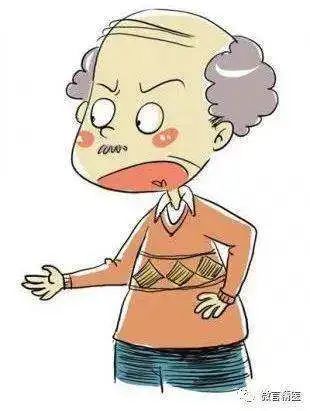The causes of diseases in the human body are diverse, and for humans, who are emotional beings, the influence of emotions can be beyond imagination. A person’s mental state is often directly affected by emotional factors. Emotions include seven psychological activities: joy, anger, worry, thought, sadness, fear, and shock. They represent the body’s different responses to external stimuli and fall within the realm of normal mental activities.
The qi (气), blood (血), yin (阴), and yang (阳) generated and stored by the organs (脏腑) serve as the material basis for emotional activities. At the same time, a person’s mental state and the fluctuations of these seven emotions constantly influence the functional activities of the organs and the flow of qi and blood. If a person is subjected to strong mental stimuli for a long time, leading to persistent and unresolved emotional fluctuations that exceed the body’s physiological regulatory capacity, it can affect the functions of the organs and meridians, resulting in imbalances or deficiencies in yin, yang, qi, and blood, which adversely impacts the constitution, thus forming a specific type of constitution.

For instance, prolonged mental depression and unexpressed emotions can lead to organ dysfunction, qi stagnation, and may easily form a qi stagnation constitution (气郁体质) or blood stasis constitution (瘀血体质). Those who frequently experience anger may transform fire and injure yin, leading to a yang heat constitution (阳热体质) or yin deficiency constitution (阴虚体质). Abnormal emotional fluctuations that lead to changes in constitution are also specifically related to the occurrence of certain diseases. For example, unresolved anger and irritability, characteristic of the “wood-fire constitution” (木火质), are prone to conditions such as stroke and dizziness; prolonged sorrow and gloominess, characteristic of the “liver qi stagnation constitution” (肝郁质), can easily trigger cancer. The formation of a phlegm-damp constitution (痰湿体质) is also closely related to emotional changes. When emotional fluctuations exceed normal ranges, they can disrupt physiological and organ activities, subsequently affecting the metabolism and distribution of subtle substances, gradually forming a phlegm-damp constitution. Long-term emotional repression can obstruct the flow of qi, leading to organ dysfunction and affecting the metabolism and distribution of subtle substances, gradually resulting in a phlegm-damp constitution.
Emotional factors not only regulate the state of constitution but also have specific connections with the occurrence of certain diseases. Mental factors have a very obvious feedback effect on individual constitution, while the differences in yin and yang of the constitution directly influence emotional changes, reflected in how emotions are expressed and how one reacts to emotional stimuli. This relationship affects the occurrence, development, prognosis, and outcome of emotionally induced diseases. The relationship between constitution and emotions is essentially the relationship between physiology and psychology, material and spirit. Therefore, maintaining a good mental state is very beneficial for the health of the constitution.

In summary, postnatal nurturing plays a very important role in the formation and regulation of constitution. Those who understand health preservation should maintain a balanced diet, regular daily routines, moderate work and rest, and engage in scientific exercise. Desires should not be excessive, and emotions should not be uncontrolled, which can help maintain a good constitution based on innate endowments and enhance it over time, or improve poor constitutions from weak to strong, thus achieving the goals of delaying aging and preventing diseases.
Author: Wu Taotao
References
Wang Qi. TCM Constitution Theory 2008 [M]. Beijing: People’s Health Publishing House
Zhang Lei. A Brief Discussion on the Relationship between Constitution and Emotions [J]. Journal of Tianjin University of Traditional Chinese Medicine, 2006, 25(2): 71-73.


